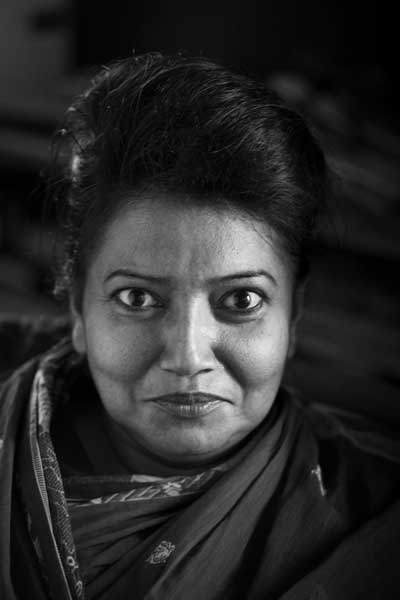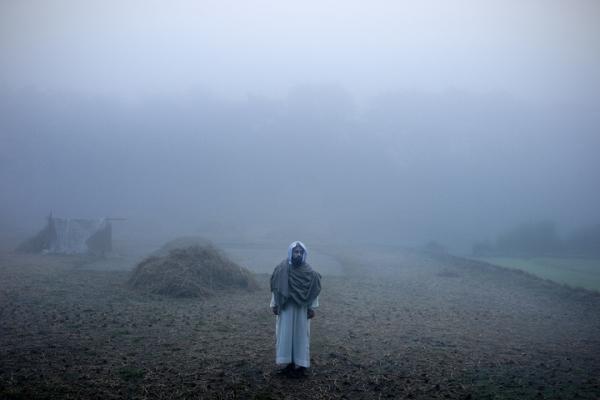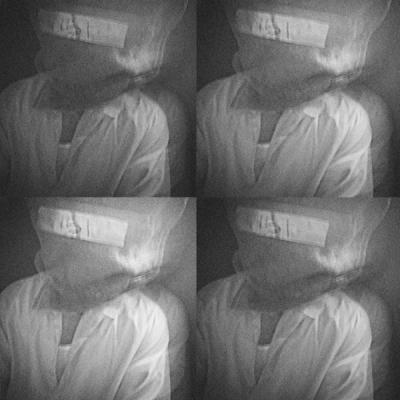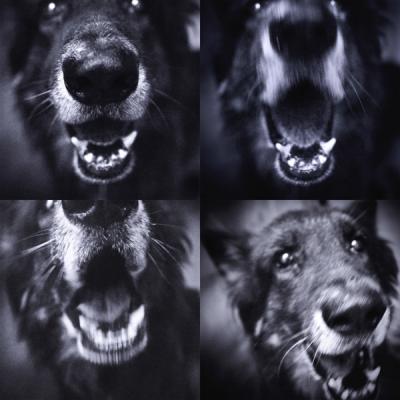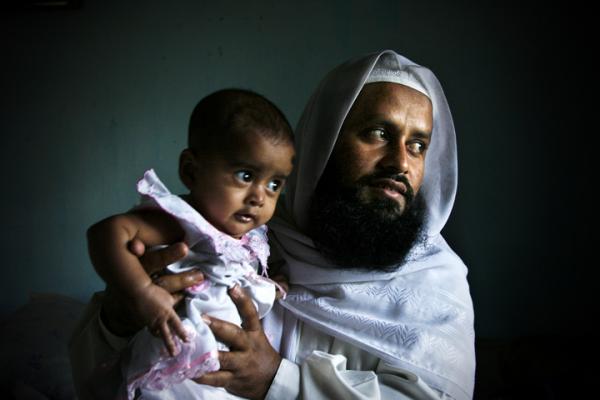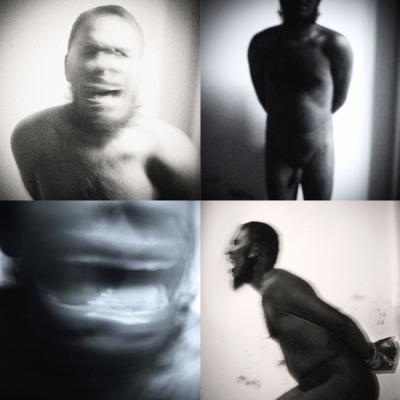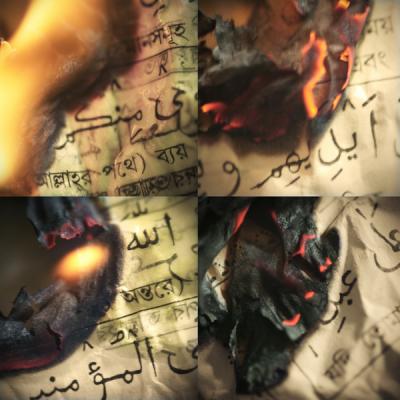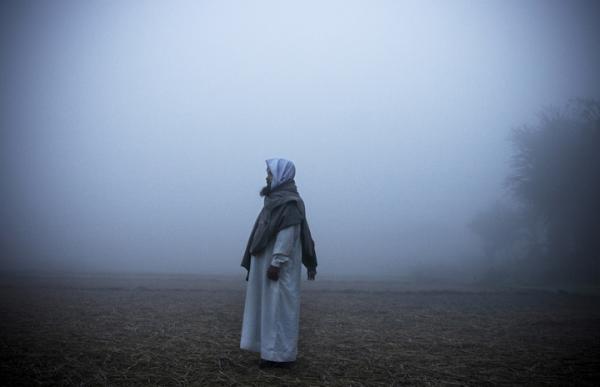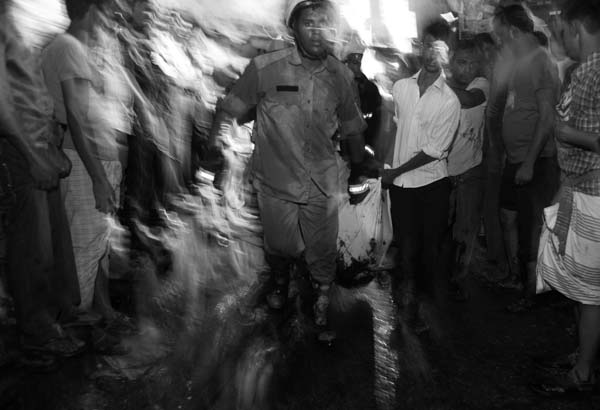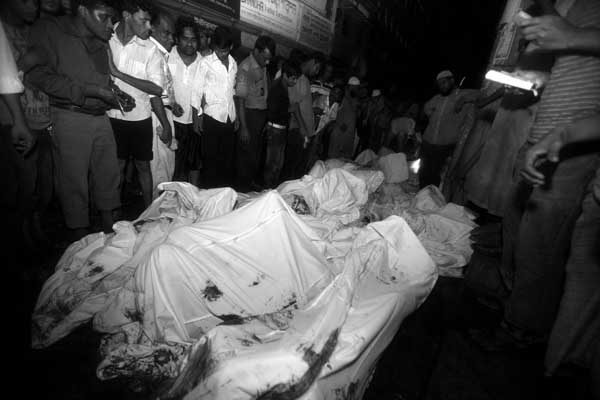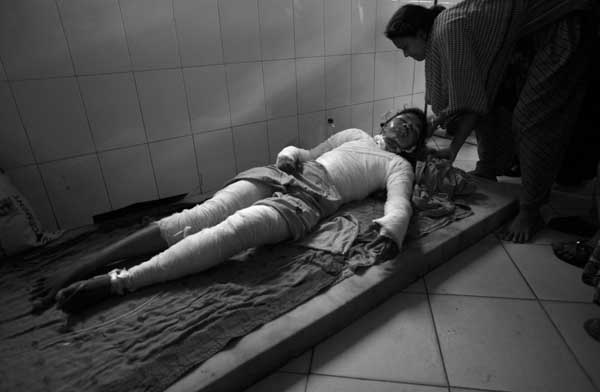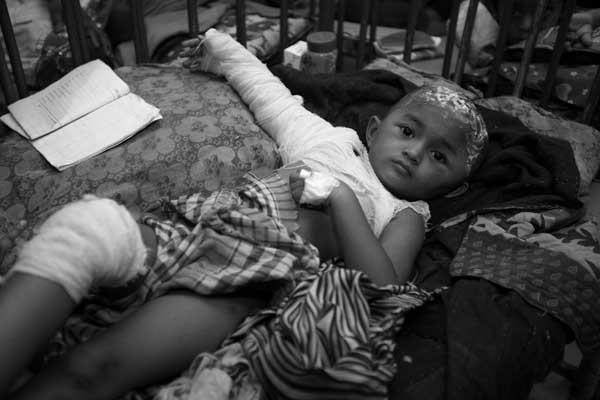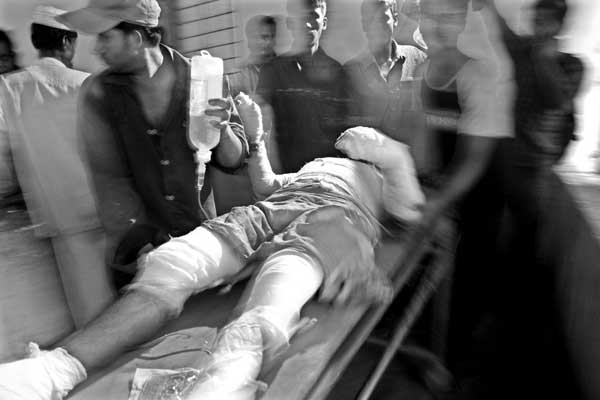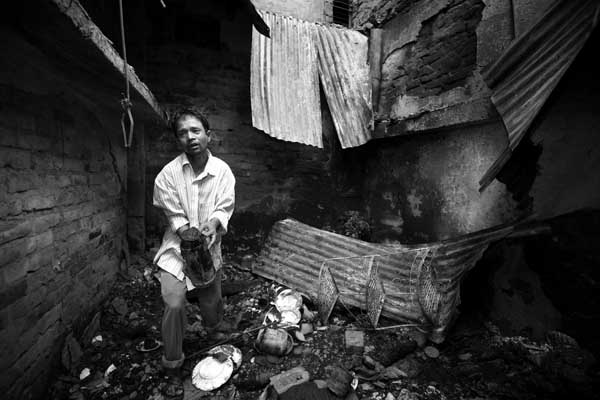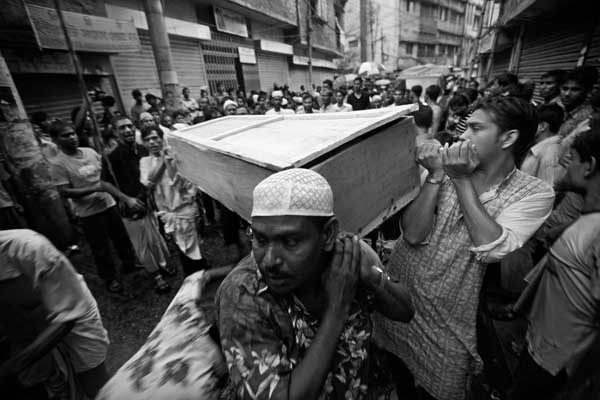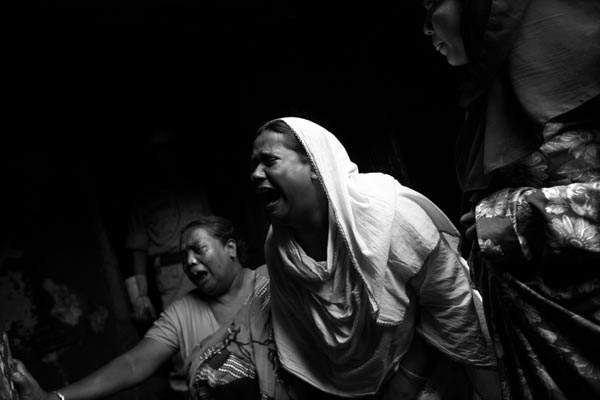Subscribe to ShahidulNews
![]()
They meander and glide. They unfurl with the rage of monsoon fury. Quietly they flow in the misty winter morn. Rivers thread the fabric of our land. Embroider patches of fertile delta. They are the nakshi kantha of our rural folklore. Life giver, destroyer, enchanter, they have inspired the greatest myths, formed the tapestry for the most endearing love songs. Our Bhatiali has been shaped by the lilt of the boatman?s lyrics drifting across the waves.
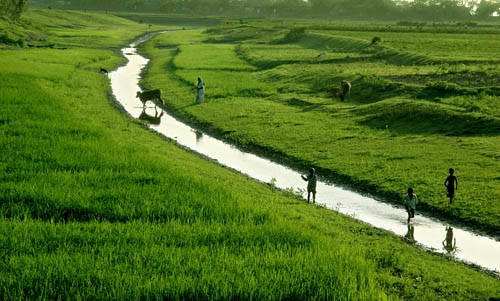
It is this fluid, amorphous, ephemeral and elusive visual that Kabir tries to hold in his rectangular frame. It is a frame heavy with the burden of its task. The rivers that float like a gossamer across the green delta hold untold stories. Tales of strife and endurance. Of the fullness of life. Of abundance ebbed, and anger unleashed.
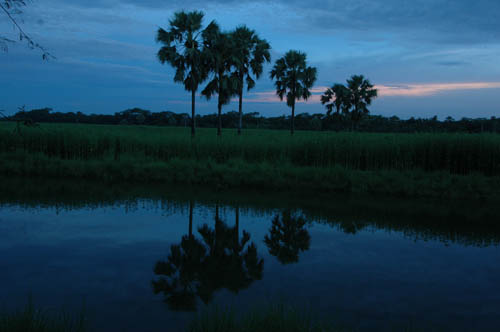
Kabir finds the rapidly disappearing sailboat drifting in the late afternoon light. The extinction of this species owes not to the depletion of its habitat, or to the oft-blamed climate change, but the advent of technology. Oil guzzling, deep tube well engines have unseated the wind from its traditional role.? A lone sail, bright red and taut against a blue sky defiantly throws a gauntlet to the mechanized usurper.

Swirling swathes of jute cleanse themselves in the very water that nurtured them in their youth. Wispy traces of boatmen recede into the darkness of dusk. The cool blue light of the evening sky wraps itself round a homebound farmer. Barefoot women, walk home after a day?s work, like a string of pearls along the sandy shores of a receding river. Parched river beds, like a desert amidst the oasis, make horizon-less paths for weary travelers to tread.
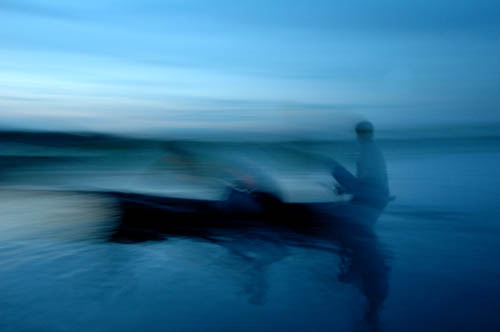
Fishermen, silhouetted against a brooding sky, cast their nets more in hope than in expectation. Overfishing of uncared for rivers, bloated with toxic waste, yield little to those who have made the river their home. Indeed it is their ancestral home. A liquid home that knew no government deeds, and obeyed no official maps. But the rules have changed. City folk whose feet walk only on the cool marble of urban dwellings own fishing rights to rivers they may never have seen. The fishermen who were raised in these waters are now outlawed in their own turf.
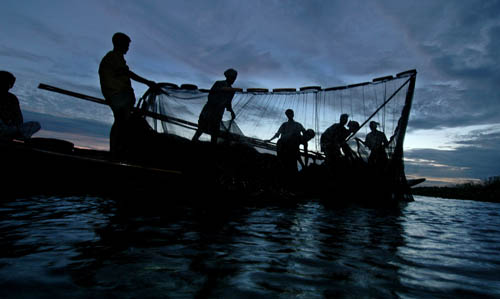
Still the river gives. Joy and thrill to the racing crews that steer swiftly through the monsoon breeze. Respite to the sun baked skin of naked boys, sari clad maidens and heavy hoofed buffalos. Turgidity to the parched leaves of the newly planted grains of rice. Looming clouds in azure skies to the poet who longs for whispering words. Winding arcs of sinewy lines to the painter?s canvas in search of form.
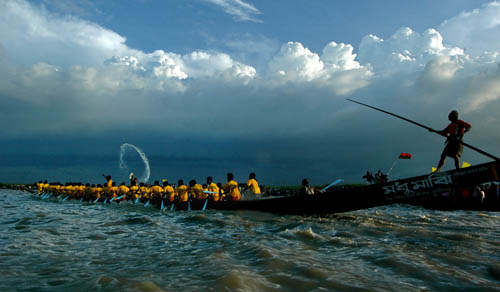
The great rivers, once bountiful and brimming, have formed the supple spine of our deltaic plains. Choking in silt, poisoned by waste, waterways throttled by land grabbing encroachers, the lifeblood of our deltaic plains weep dry tears as their once glistening bodies writhe in pain. It is a pain city dwellers are deaf to. A pain that short sighted politicians and profit seeking urban planners have no time for. Kabir rejoices in the vigour of the river. Is saddened by its pain. His portrait of the river shows both its wrinkles and its smile.
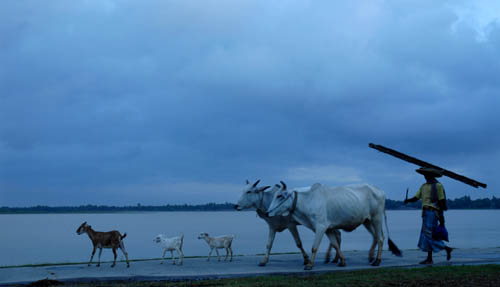
Photographs: Kabir Hossain
Text: Shahidul Alam
The exhibition “River and Life” by Kabir Hossain will remain open until the 17th July at the Drik Gallery II from 3:00 pm till 8:00 pm

